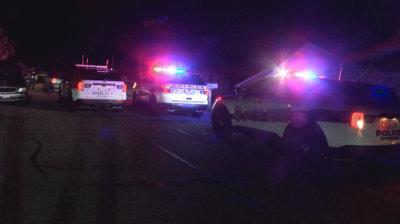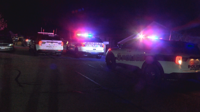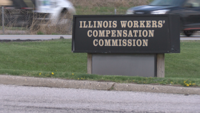SPRINGFIELD, Ill. �� State lawmakers heard testimony from several advocates hoping for police reform Tuesday afternoon. Police accountability and criminal justice reform are key parts of the Legislative Black Caucus push for change during veto session. With several officer-involved shootings over the last week, lawmakers say this is something that can’t wait.
Cook County Board President Toni Preckwinkle feels the Chicago Police Department delayed implementation of reforms or refused to change practices.
“We believe that the authority to mandate implementation should not be dependent on the will of the police department, but rather, certain reforms should be codified at the state with funding tied to police department compliance,�� Preckwinkle said.
She also noted current collective bargaining agreements make it difficult to hold officers accountable for misconduct. That leaves state’s attorneys with the hard job of analyzing each case filed against departments.
“We believe that the onus thing is on us to use our resources and investigative tools to be able to figure out whether an allegation has legitimacy or credibility,�� Cook County State’s Attorney Kim Foxx said.
The Cook County Public Defender, Amy Campanelli, represents people who cannot afford legal assistance. Campanelli told lawmakers she feels community trust in police is “virtually nonexistent.��
“Requiring officers to wear body-worn cameras is one way that our state can work towards improving trust of police by the community while increasing officer accountability,�� Campanelli explained.
Body cameras
The Illinois Association of Chiefs of Police says only 75 of the state’s nearly 900 police departments used body cameras last year. While many officers agree cameras are a great tool, some chiefs argue it can’t be the sole resource for change.
“Complicated issues such as trust between a law enforcement agency and the community it serves must be built and reinforced each day through various outreach and engagement efforts with the sole and only goal to be the betterment of the community and the police department,�� said Elgin Police Chief Anna Lalley.
Still, Lalley says the limitations body cameras have don’t outweigh the benefits they can provide police and victims. Members of the Law Enforcement Action Partnership (LEAP) also gave their opinions on the practice.
“Body cameras enable departments to disprove false accusations and root out officer misconduct,�� said Mark Buslik. “While cameras are not a perfect tool, with appropriate safeguards, they can be helpful with improving police-community trust and safety.��
Buslik says the cameras can collect useful evidence and help with insight to police interactions. “With proper oversight and regulation, body cameras can be an indispensable crimefighting and accountability tool that can and should be used by all police departments.��
However, Buslik explained departments struggle with effectiveness and efficiency when utilizing body cameras. He noted incident reporting requirements, freedom of information requests, and costs need continued refinement.
“We must have a system that is more just and equitable for both communities and police. If a defendant is guilty, they should be held accountable but there should not be a thumb placed on the scale to make someone plead to something that they did not do. That is not justice,�� said Sen. Elgie Sims (D-Chicago). “We have to make sure that we are holding the right people accountable.��














